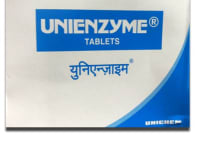USED FOR:
Bacterial infections
COMPOSITION:
Levofloxacin (500mg)
Azithromycin (500mg)
Therapeutic Uses:
ophthal
anti infectives

SAFE
It is generally safe to consume alcohol with Qulef Z 500 mg/500 mg Tablet.

WEIGH RISKS VS BENEFITS
Qulef Z 500 mg/500 mg Tablet is unsafe to use during pregnancy.There is positive evidence of human fetal risk, but the benefits from use in pregnant women may be acceptable despite the risk, for example in life-threatening situations. Please consult your doctor.

CAUTION
Qulef Z 500 mg/500 mg Tablet is probably unsafe to use during lactation. Limited human data suggest that the drug could represent a significant risk to the baby.

Qulef Z 500 mg/500 mg Tablet may make you feel dizzy, drowsy or affect your vision. Do not drive until your vision is clear.

CAUTION
Qulef Z 500 mg/500 mg Tablet should be used with caution in patients with kidney disease. Dose adjustment of Qulef Z 500 mg/500 mg Tablet may be needed. Please consult your doctor.

CAUTION
Qulef Z 500 mg/500 mg Tablet should be used with caution in patients with liver disease. Dose adjustment of Qulef Z 500 mg/500 mg Tablet may be needed. Please consult your doctor.
Uses of Levofloxacin
Levofloxacin is used in the treatment of bacterial infectionsIt is also used in infections of urinary tract, tonsils, sinus, nose, throat, female genital organ, skin and soft tissues, windpipe and lungs (pneumonia).
How to use Levofloxacin
Take this medicine in the dose and duration as advised by your doctor. Swallow it as a whole. Do not chew, crush or break it. Qulef Z 500 mg/500 mg Tablet may be taken with or without food, but it is better to take it at a fixed time.Avoid Qulef Z 500 mg/500 mg Tablet with dairy products such as milk, cheese, curd, butter, paneer and ice cream.
How Qulef Z 500 mg/500 mg Tablet works
Levofloxacin is an antibiotic. It kills bacteria by preventing them from reproducing and repairing themselves. This treats your infection.
Common Nausea, Diarrhoea, Allergic reaction.
Expert advice for Levofloxacin
Your doctor has prescribed Levofloxacin to cure your infection and improve symptoms. Do not skip any doses and finish the full course of treatment even if you feel better. Discontinue Levofloxacin and inform your doctor immediately if you get a rash, itchy skin, swelling of face and mouth, or have difficulty in breathing. Diarrhea may occur as a side effect but should stop when your course is complete. Inform your doctor if it doesn't stop or if you find blood in your stools. Notify your doctor if you feel pain in your tendons, numbness, or tingling sensations. Inform your doctor if you are pregnant or planning to conceive or breastfeeding.
Q. What is Levofloxacin?
Levofloxacin is a quinolone antibiotic. It works by killing the bacteria that cause infections in your body. It can be used to treat infections of the sinuses, lungs, urinary tract, including your kidneys or bladder, prostate gland and skin and soft tissue.
Q. Can I take Levofloxacin with prednisone?
Levofloxacin and prednisone when taken together may increase the risk of tendon rupture (a tendon is a cord that joins your muscle to your bones). If you experience pain and inflammation in your tendons or ligaments, which could lead to rupture, stop taking Levofloxacin immediately and talk to your doctor. Always consult your doctor before taking the two medicines together.
Q. Is Levofloxacin a narcotic substance?
No, Levofloxacin is not a narcotic substance. It is a quinolone antibiotic.
Q. Can I take Levofloxacin with loratadine?
Levofloxacin can be taken with loratadine. No drug-drug interactions have been seen between the two. However, interactions can occur. Please consult your doctor before taking the two medicines together.
Q. Can I take Levofloxacin with esomeprazole?
Levofloxacin can be taken with esomeprazole. No drug-drug interactions have been seen between the two. However, interactions can occur. Please consult your doctor before taking the two medicines together.
Q. Does Levofloxacin affect birth control?
Levofloxacin can be taken with birth control pills (oral contraceptive pills). No drug-drug interactions have been reported between them. However, interactions can occur. Talk to a doctor to confirm whether you need to use extra precaution while taking Levofloxacin with birth control pills.
Q. Can I take Levofloxacin for a tooth infection?
Levofloxacin is not used to treat tooth infection. If you think you have a tooth infection, talk to a doctor and start antibiotics only as advised, do not start antibiotics on your own.
Q. Can I take Levofloxacin for streptococcal throat infection?
Levofloxacin is active against streptococcus bacteria and can be used for the treatment of a streptococcal sore throat. If you think you have a sore throat infection, talk to a doctor and start antibiotics only as advised, do not start antibiotics on your own.
Q. Is Levofloxacin same as ciprofloxacin?
Levofloxacin and ciprofloxacin are two different antibiotics, however, they belong to the same class of quinolone antibiotics. Levofloxacin is as effective as ciprofloxacin for treating complicated urinary tract infections. In men with chronic bacterial prostatitis treated for 28 days, oral Levofloxacin 500mg once daily achieved similar clinical and bacteriological response rates to oral ciprofloxacin 500mg twice daily. Levofloxacin is more active against Gram-positive organisms than ciprofloxacin. Ciprofloxacin is an economical alternative and Levofloxacin is active against many bacteria but can cause damage to your tendons. So, it is advisable that you must talk to a doctor for the right choice of antibiotics for your infections.
Q. Can I take Levofloxacin for tonsillitis?
Levofloxacin is not indicated for the treatment of tonsillitis. If you think you have tonsillitis, talk to a doctor and start antibiotics only as advised, do not start antibiotics on your own.
Q. Can I take Levofloxacin with guaifenesin?
Levofloxacin can be taken with guaifenesin. No drug-drug interactions have been seen between the two. However, interactions can occur. Please consult your doctor before taking the two medicines together.
Q. Can I take Levofloxacin with paracetamol?
Levofloxacin can be taken with paracetamol. No drug-drug interactions have been seen between the two. However, interactions can occur. Please consult your doctor before taking the two medicines together.
Q. Does Levofloxacin contain sulfa?
Levofloxacin does not contain sulfa. It belongs to a group of medicines called quinolone antibiotics.
Q. Does Levofloxacin cover methicillin resistant Staphylococcus aureus (MRSA)?
Levofloxacin does not cover methicillin-resistant staphylococcus aureus (MRSA). Also, MRSA is very likely to have co-resistance to quinolones, including Levofloxacin.
Q. Does Levofloxacin expire?
Yes, like any other medicine, Levofloxacin has an expiry date. Please check the expiry date mentioned on the pack before taking the medicine.
Q. Does Levofloxacin treat bacterial vaginosis?
Levofloxacin is not used to treat bacterial vaginosis. If you think you have bacterial vaginosis, talk to a doctor and start antibiotics only as advised, do not start antibiotics on your own.
Q. Does Levofloxacin cause dry mouth?
Levofloxacin does not cause dry mouth. Talk to your doctor if you experience dry mouth while taking Levofloxacin as it could be due to some other underlying condition.
Q. Is Levofloxacin safe to use?
Levofloxacin is safe if used at prescribed doses for the prescribed duration as advised by the doctor.
Q. Is Levofloxacin penicillin?
Levofloxacin is not a penicillin. It belongs to a group of medicines called quinolone antibiotics.
Q. Is Levofloxacin a steroid?
Levofloxacin is not a steroid. It belongs to a group of medicines called quinolone antibiotics.
Q. Is Levofloxacin a quinolone?
Yes, Levofloxacin belongs to a group of medicines called quinolone antibiotics.
Uses of Azithromycin
Azithromycin is used in the treatment of bacterial infections and typhoid fever.It is used in bacterial infections of tonsils, sinus, ear, nose, throat, skin and soft tissues, windpipe and lungs (pneumonia).
How to use Azithromycin
Take this medicine in the dose and duration as advised by your doctor. Swallow it as a whole. Do not chew, crush or break it. Qulef Z 500 mg/500 mg Tablet may be taken with or without food, but it is better to take it at a fixed time.Avoid Qulef Z 500 mg/500 mg Tablet with dairy products such as milk, cheese, curd, butter, paneer and ice cream.
How Qulef Z 500 mg/500 mg Tablet works
Azithromycin is a macrolide antibiotic. It stops bacterial growth by inhibiting synthesis of essential proteins, which are required by bacteria to carry out vital functions.
Common Nausea, Vomiting, Abdominal pain, Diarrhoea, Allergy.
Expert advice for Azithromycin
Your doctor has prescribed Azithromycin to cure your infection and improve symptoms. It is better to take with food to avoid an upset stomach. Do not skip any doses and finish the full course of treatment even if you feel better. Diarrhea may occur as a side effect but should stop when your course is complete. Inform your doctor if it doesn't stop or if you find blood in your stools. Do not take antacids 2 hours before or after taking Azithromycin.
Q. Is Azithromycin an antibiotic?
Yes, Azithromycin is an antibiotic. It belongs to a class of antibiotics known as macrolides. It can be used to treat bacterial sinusitis, tonsillitis, ear infections, pneumonia and many other if caused by micro-organisms sensitive to Azithromycin. It should be taken only when prescribed by a doctor.
Q. Is Azithromycin used for treating a cold and sore throat?
Azithromycin is used to treat cold and sore throat only if there is an underlying bacterial infection present. Please consult your doctor before taking Azithromycin in these conditions.
Q. Is Azithromycin safe?
Azithromycin is safe if used at prescribed doses for the prescribed duration as advised by your doctor.
Q. Is Azithromycin good for tonsillitis?
Azithromycin can be used for the treatment of tonsillitis. However, there are antibiotics which are preferred over Azithromycin for its treatment. Please consult your doctor before taking any antibiotics for tonsillitis.
Q. Is Azithromycin banned?
No, Azithromycin is not a banned medicine. However, it is available on prescription by a physician.
Q. Can Azithromycin be used to treat a fever?
Fever is a symptom which could be due to an underlying infection like bacterial, viral or fungal. Azithromycin can be used for the treatment of bacterial infections only. Please take advice from your physician before taking any antibiotic for fever as it is important to identify the type of infection causing fever.
Q. Is Azithromycin used for urinary tract infection (UTI)?
Azithromycin is not recommended for the treatment of urinary tract infection (UTI). Please consult your doctor before taking any antibiotics for the treatment of UTI.
Q. Is Azithromycin good for acne?
Azithromycin can be used for the treatment of acne. Clinical studies have shown a good efficacy of Azithromycin in the treatment of acne. However, it is always advised that you should consult to your physician before taking any antibiotics for your infections.
Q. Can I take Azithromycin with paracetamol?
Azithromycin can be taken with paracetamol as no drug interactions have been clinically observed between the two medicines. However, interactions can occur. Please consult your doctor before taking the two medicines together.
Q. Can I take Azithromycin with omeprazole?
Azithromycin can be taken with omeprazole as no interactions have been clinically observed between the two medicines. However, interactions can occur. Please consult your doctor before taking the two medicines together.
Q. Can I take Azithromycin with ibuprofen?
Azithromycin can be taken with ibuprofen as no interactions have been clinically observed between the two medicines. However, interactions can occur. Please consult your doctor before taking the two medicines together.
Q. Can I take Azithromycin with esomeprazole?
Azithromycin can be taken with esomeprazole as no drug interactions have been clinically observed between the two medicines. However, interactions can occur. Please consult your doctor before taking the two medicines together.
Q. Can I take Azithromycin with birth control pills (oral contraceptives)
No interactions have been clinically observed between Azithromycin and birth control pills (oral contraceptives). However, this does not mean interactions cannot occur. Please talk to your doctor if you have been advised to take Azithromycin and you are already taking birth control pills (oral contraceptives).
Q. Does Azithromycin treat a cough?
No, Azithromycin cannot treat a cough. Cough is a symptom which represents an underlying disease or an infection. Azithromycin can help in relieving cough only if it would be effective in treating the underlying infection. Please talk to your doctor before taking any medicine for your cough.
Q. Does Azithromycin affect sperm?
Azithromycin has not been reported to affect sperms.
Q. Does Azithromycin cause drowsiness?
No, Azithromycin does not cause drowsiness. Please consult your doctor if you experience drowsiness while taking Azithromycin.
Q. Does Azithromycin cause diarrhea?
Diarrhea (loose stools) is a very common side effect of Azithromycin. Please consult your doctor if you experience excessive diarrhea while taking Azithromycin.
Q. Does Azithromycin affect fertility?
Azithromycin is not known to affect fertility in humans. Inadequate data is available for humans. Please consult your doctor if you have concerns regarding the same.
Q. Can I take Azithromycin for throat infection caused by streptococcus?
Yes, Azithromycin can be taken for throat infection caused by streptococcus. However, this an alternative medicine for the same. There are other antibiotics available which could be more effective in the treatment of streptococcal throat infections. Please take the advice from your doctor before taking any antibiotics.
Q. Can I take Azithromycin for a toothache (tooth pain)?
Azithromycin would be helpful in a toothache (tooth pain) only when there is an underlying infection which is causing the pain. Please talk to your doctor before taking Azithromycin or any other antibiotic for relief of a tooth pain.
Q. Can I take Azithromycin for the flu?
No, Azithromycin is not recommended for the treatment of flu (influenza infection). Please consult your doctor if you are experiencing the signs and symptoms of flu (influenza infection) before taking any medicines including antibiotics like Azithromycin as this is a viral infection and taking any antibiotics would not help in this condition.
Q. Can I take Azithromycin for a sinus infection?
Yes, Azithromycin can help to treat a bacterial sinus infection. However, as always advisable, antibiotics should only be taken only when the infection is properly diagnosed by the doctor and then antibiotics are taken as advised.
Q. Can I take Azithromycin for yeast infection?
Azithromycin is an antibiotic (works against a bacterial infection). It does not have any action against the yeast (fungal) infection.
Q. Can I take Azithromycin for chlamydia?
Yes, Azithromycin can be taken for chlamydial infection. However, it is always advisable to take antibiotics only when recommended by a doctor, in the doses advised.
Q. Can I take Azithromycin for tooth infection?
Azithromycin can be taken to treat tooth infection. However, it is always advisable to take antibiotics only when recommended by a doctor to treat the infection.


 Qulef Z 500 mg/500 mg Tablet
Qulef Z 500 mg/500 mg Tablet  Bookmark
Bookmark





















